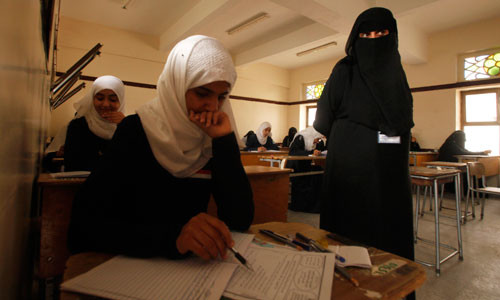Yemen Country Page
In Yemen, IFES continues the mission of the Status of Women in the Middle East and North Africa (SWMENA) project by focusing on gender gaps and working with local partners.
What We Are Doing
Unlike Morocco and Lebanon where the SWMENA team continued to conduct workshops and trainings, because of the ongoing political instability in Yemen since late fall 2010, IFES and its donor CIDA decided to indefinitely suspend all in-country activities following survey completion. IFES has worked diligently with its in-country advisors to bring members of Yemeni NGOs to workshops outside the country. Unfortunately, because of the suspension of activities, IFES was unable to fully implement all activities in Yemen.
Our Impact
- In July 2011, IFES flew six men and women members of Yemeni NGOs to Beirut, Lebanon to participate in an Infographics for Advocacy training. This training focused on SWMENA data and how to incorporate visually appealing and easy to understand graphics and charts into advocacy campaigns.
- Twelve activists from Yemen were flown to Cairo, Egypt in December 2010 for IFES’ Data Dissemination workshop where IFES and IWPR released the findings from the Yemen SWMENA survey and elicited feedback and analysis on the results from local stakeholders. IFES presented participants with an overview of the survey and respondent demographics and covered the results of six of the major topics included in the questionnaire. The results are summarized in topic briefs, available in English and Arabic.
- During June 2010, IFES’ Research Specialist worked in partnership with a local survey firm, Yemen Polling Center, to implement the SWMENA Morocco survey through in person interviews with 2,501 Yemeni men and women aged 18 years and older.
- In May 2009, IFES, IWPR and advisors from Lebanon, Morocco and Yemen convened in Beirut for a regional Indicator Working Group Meeting. During this meeting, IFES and IWPR worked with the local advisors to create the basis for the comparative portion of the SWMENA surveys.
Topic Briefs
Yemen
- Project Overview & Respondent Demographics
- Civic and Political Participation Topic Brief
- Educational Attainment and Career Aspirations Topic Brief
- Paid Work and Control of Earnings & Assets Topic Brief
- Social Attitudes Toward Women Topic Brief
- Opinions on Early Marriage and Gender Quotas Topic Brief
- Freedom of Movement, & Freedom from Harassment & Violence Topic Brief
- Health Care Access Topic Brief
Topics



